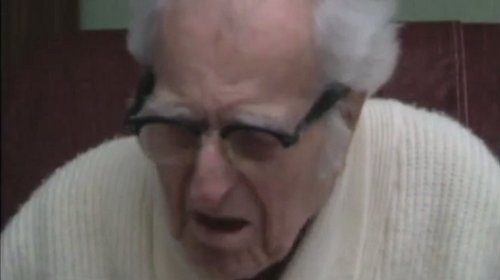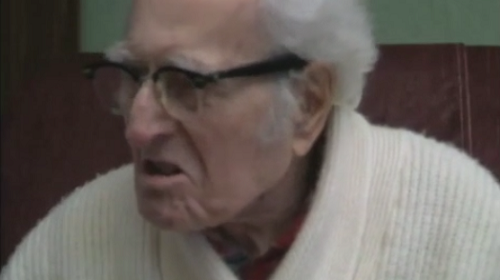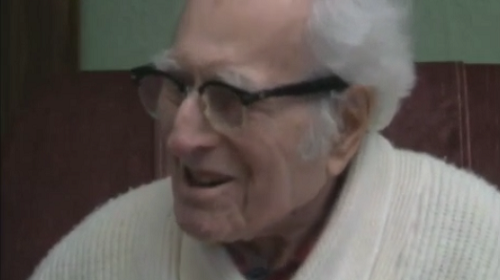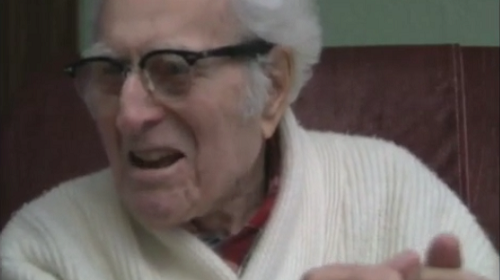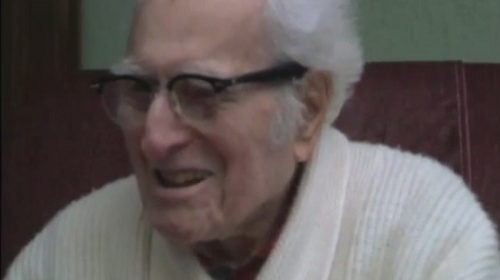Mustard Gas Versus Cloud Gas
Heroes Remember
Mustard Gas Versus Cloud Gas
Transcript
He was using what we call “mustard gas”
poisoning because it was something like
mustard and it was, he was using that.
And you see that was against the
rules of warfare, the Germans as well
as the British and the Americans had
signed a contract not to resort to
gas poisoning, but the Germans of course
soon gave that up. On one occasion they
used cloud gas and the wind changed and
turned the gas right back on
the Germans themselves. That was one
experience that we rejoiced over, you see.
That was what we called cloud gas,
but the shell gas of course were gas shells,
fired gas shells that just blew the head off
them and the gas was released.
But the trouble is you can't fight with
gas masks on you got to take them off.
They were packed inside and
you had to take them off.
All right if you were inactive, there was no
fighting going on you could wear a gas mask,
but if there was any action,
off would have to come the gas mask.
Description
Mr. Boyce discusses the difference between cloud gas and mustard gas, which was delivered by artillery shell. He describes the futility of trying to wear a gas mask in a combat situation.
Harry Boyce
Harry Boyce was born in Bonshaw, Prince Edward Island on September 4, 1893. After moving to Regina to work as an architect, he returned to P.E.I. to enlist with the 8th Canadian Siege Battery. He trained in Charlottetown then went overseas and continued his training at Aldershot, England, where he specialized on the 8-inch siege gun, which fired a 200 pound shell. In the autumn of 1915 he was sent to France and served during the Somme, Vimy Ridge and Le Preol. He was gassed and repatriated to Canada.
Meta Data
- Medium:
- Video
- Owner:
- Veterans Affairs Canada
- Duration:
- 1:25
- Person Interviewed:
- Harry Boyce
- War, Conflict or Mission:
- First World War
- Branch:
- Army
- Rank:
- Warrant Officer
- Occupation:
- Sergeant
Related Videos
- Date modified:



